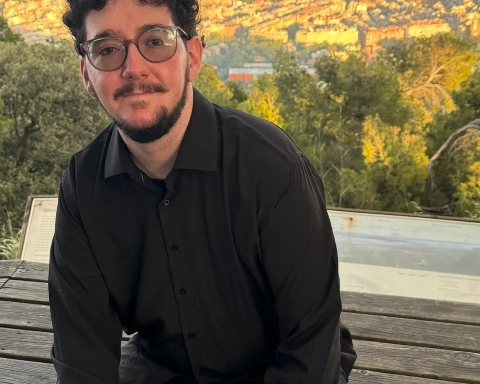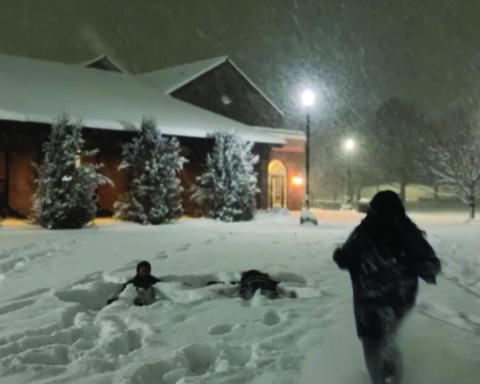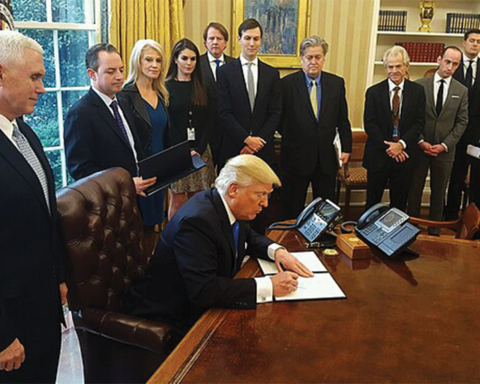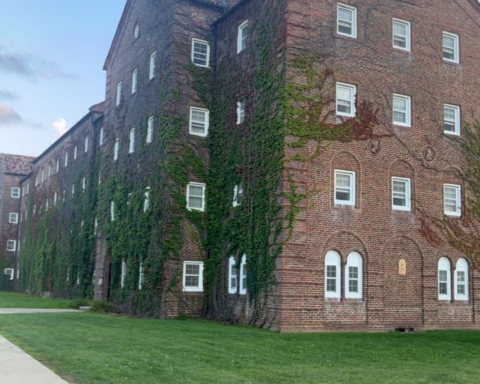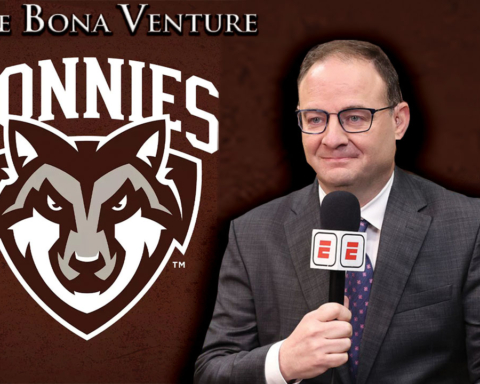Damian Mordecai, the executive director of the Pride Center of Western New York, came to the Damietta Center for Multicultural Student Affairs at St. Bonaventure University Monday evening to discuss his role as an activist. The event was well attended, with some students having to sit outside of the center.
“The Pride Center is not exclusively for the LGBTQ community. It’s also for cisgender heterosexual people,” said Parker Suddeth, the coordinator of the Damietta Center. “The advocacy work they provide for this particular region, including Olean and St. Bonaventure, is resource which oftentimes go underused.”
Mordecai was named the executive director in 2017 after working at the Pride Center for ten years. He oversees comprehensive services and programs that benefit the community. Most recently, Mordecai has been focusing on the development of SCOUT, an innovative program addressing the sexual health and wellness need of young gay men.
Mordecai centers field education programs to educate a wide variety of businesses and health and wellness providers of needs of the LGBTQ population. He provided LGBTQ competency training to more than 250 businesses and organizations to date. Additionally, he has provided training to government and law enforcement officials, including the FBI and more.
When asked what inspired him to be an activist, Mordecai said it started at a young age when he lived at home with his family. Growing up in a Puerto Rican household, Mordecai’s family and culture believed in machismo, which is essentially male chauvinism, and being taught that the father is the “end all and be all.”
Mordecai disagreed with these views and considered his first display of activism was in his own household. He ended up being kicked out of his home at the age of 14.
“That was the beginning of challenging an institution that was larger than I was,” said Mordecai. “…life isn’t fair and I get that, but there is a lot we can do to make it fair.”
Going against the views of his household and culture left him unafraid to challenge things or speak out.
“Eventually you just get tired of all of these systems that set you up to be oppressed,” said Mordecai.
When Mordecai attended the SUNY Buffalo State, he searched to find a club to join so he could make friends. He knew they had a gay-straight alliance club on campus, but had difficulty in finding it, as it was only made up of four people, and they met in the basement of a dorm. Other students would rip down the club’s flyers and show hostility towards them at events.
“It’s not easy to do activist work,” said Mordecai. “You’re constantly being attacked. Most of the time you’re being attacked by the very people you are trying to help and it’s tough.”
Mordecai found paper that did not rip and made the club known on campus. When setting up a table for the club at the student union, someone asked Mordecai, ‘Who’s making you do this?’ to which he replied, ‘No one is making me do this. We’re a real group.’
“Everyone was shocked,” said Mordecai.
Shortly after this situation, the club became one of largest student organizations on campus and held that position for two years following Mordecai’s graduation.
During his time in the club, a representative from the Pride Center visited and the club for help at the center. When there was a job opening, Mordecai applied and got the job. Though he had no experience, Mordecai taught himself.
“If someone said, ‘You’re gonna be a leader and you’re gonna talk about gay stuff to the FBI,’ I would’ve just laughed,” said Mordecai. “…I would have never spoken in front of a group like this and definitely not to the FBI, but life sometimes leads you down a path and you don’t even know it’s leading you to that.”
While at the event, Suddeth asked Mordecai how he “recharges” after activist work and what pushes him to persevere.
“He just affirmed to me, you know, healthy practices,” said Suddeth. “It’s not necessarily the big things people think. It’s not necessarily the big programs, the big initiatives that we all think will make the campus more inclusive, attractive or more welcoming.”
Suddeth noted the significant change on campus in culture and climate.
“It only speaks to the direction the university is going to really create a climate of equity and inclusion,” said Suddeth.
When asked about what he wanted students to take away from the discussion was that life is a journey and one never knows where they will end up.
“Also, to continue or develop, do some self-exploration in regards to your growth and development individually and begin to explore those biases or stereotypes that you have for what they are,” said Suddeth.
Suddeth also wanted to thank Katie O’Brien, the vice president of student affairs at Bonaventure, for “her support and commitment to raising the profile of the center.”
By Amber Canbek, News Editor
canbekam16@bonaventure.edu

